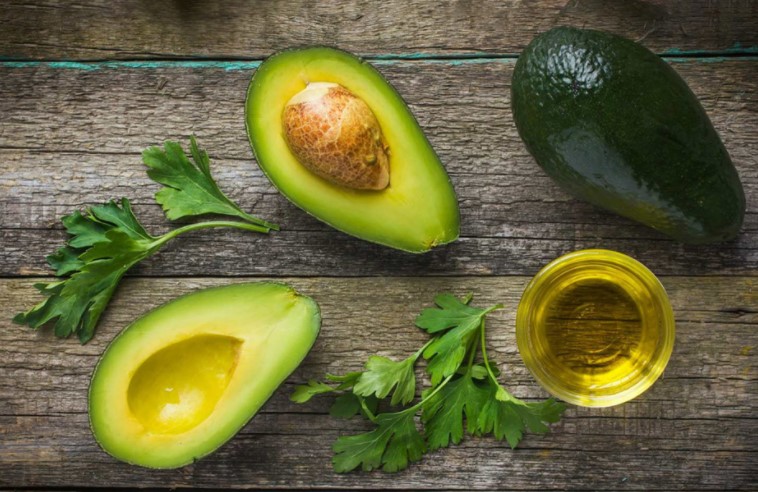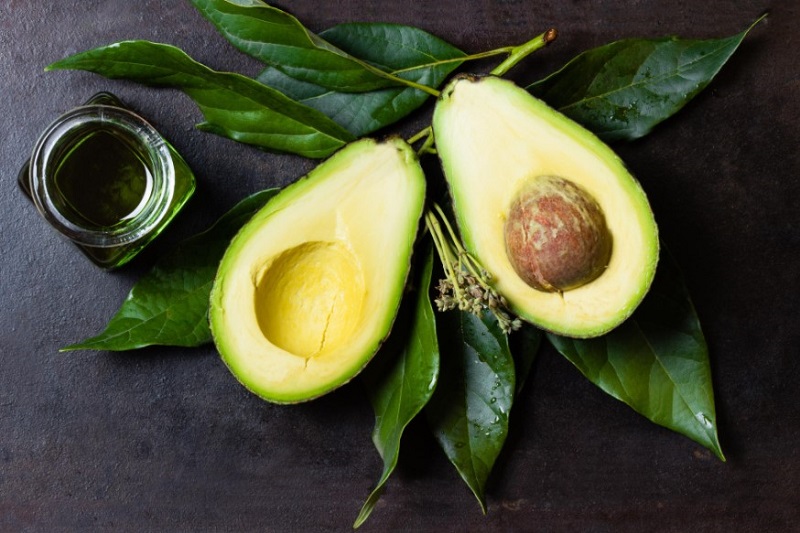
What Are the Advantages of Applying Avocado Oil to My Skin?
Avocado oil is an excellent tool for creating flavorful and nutritious meals. It’s high in antioxidants, essential fatty acids, minerals, and vitamins. But have you ever thought about using this delectable fruit to soothe and heal your skin?
The absorbent oil is thought to have a variety of skin benefits, such as moisturizing dry hands and acting as a natural sunblock. Avocado oil can be applied directly to the skin or combined with your favorite beauty products.
Are there any advantages to using avocado oil on my skin?
Avocado oil’s antioxidants and anti-inflammatory agents keep your skin smooth, strong, and elastic. Avocado oil can be purchased at any health or grocery store and used to:
- Soothe itchy skin, heal chapped skin, replenish dry skin, and hydrate and moisturize the skin
- Protect the skin from ultraviolet rays
- Protect against skin damage
Avocado oil is sometimes referred to as an essential oil, but this is not entirely accurate. Avocado oil, which is thick and green in color, is classified as a carrier oil.
Essential oils are highly concentrated lubricants derived from aromatic plant parts such as the root or leaves. Carrier oils are extracted from the seeds, nuts, or other fatty parts of the fruit and used to dilute essential oils. Carrier oils do not evaporate and have strong scents, whereas essential oils do.
Avocado oil’s main benefits are to soothe and add moisture, so it won’t work as well if you have oily skin. Avocado oil does not produce a lot of greases.
According to the research
Natural oils, such as avocado oil, have been shown in studies to be beneficial to the skin. This works whether you use avocado oil alone or in conjunction with another agent, such as your favorite skin cream.
Avocado oil contains beta carotene, protein, lecithin, fatty acids, and vitamins A, D, and E, which help moisturize and protect your skin from UV rays while also increasing collagen metabolism.
A 2015 study discovered that a topical skin cream containing avocado, tea tree, emu, and jojoba oils had antimicrobial properties.
Avocado oil may also aid in wound healing. According to a 2013 study, linoleic acid, oleic acid, and other monounsaturated fatty acids found in avocado oil can speed up wound healing.
The findings presented above are based on animal studies. More research is needed to investigate the effects of avocado oil on humans.
Some evidence suggests that avocado oil may aid in the treatment of skin conditions such as plaque psoriasis, a chronic autoimmune condition characterized by thick, scaly, red patches on the skin. According to a 2001 study, avocado oil mixed in vitamin B-12 cream could relieve psoriasis symptoms for a longer period of time than traditional vitamin D-3 therapy. According to the researchers, a vitamin B-12 cream containing avocado oil could be used as a long-term tropical treatment.
How to Apply Avocado Oil to the Skin

Avocado oil can be used in a variety of ways in your skincare routine. You can massage the oil into your skin, apply it to your face as a mask, or mix it into your shower lotion. It can be used every day or a few times a month without causing any problems. Not sure where to begin? Avocado oil can be used in the following ways:
- As a moisturizer for chapped skin, massage a generous amount of avocado oil into your skin after bathing. You can use the avocado oil on its own or combine it with one of your favorite body lotions.
- Fill 2/3 of a servings bottle with avocado oil to use as a facial oil moisturizer. Fill the remaining third of the bottle with another nourishing oil, such as tamanu or emu. Three to four droplets of your favorite essential oil, such as lavender or rose, should be added. Twist the cap and shake vigorously.
Further More:
Pour a small amount of your homemade oil into the palm of your hand, then dab your fingers into it and apply it to your face. You can also use the oil to moisturise your hands. If you keep the bottle out of direct sunlight, the oil can last up to a year.
- Cut a ripe avocado into cubes and mix in a small amount of oil for a homemade facemask. Mash it with a fork or spoon to make an even paste. Apply the paste to your face and wait 10 to 15 minutes for it to dry. Depending on your skin type, you can remove the avocado mask with warm water or a face cleanser.
- As a natural skin anti-ageing cream: In a glass jar, combine 1/4 cup avocado oil, 2 tablespoons coconut oil, 2 tablespoons beeswax, 1/2 teaspoon vitamin E oil, and 1 tablespoon Shea butter. Place the jar, lidless, in a pot with about four inches of water. Bring to a boil. As the ingredients melt in the jar, stir them together. Pour the melted cream into a smaller jar and set aside until the mixture hardens. Place the cream in a cool place and cover with a lid.
Risks and precautions
There have been few studies on the side effects of avocado oil. As with any product, a patch test on your skin is recommended first to rule out any allergies.
Rub a dime-sized amount of the oil into the inside of your forearm to accomplish this. If you don’t notice any irritation or inflammation within 24 hours, the oil is probably safe to use.
If you have an avocado allergy, consult your doctor before using avocado oil.
What you can do right now
You won’t have to look far if you want to incorporate Oil into your skincare routine. Avocado oil can be purchased for as little as $5 for a small bottle online. Avocado oil can also be purchased at your local organic food store or a health store chain such as GNC.
You may notice the benefits of avocado seed tea on your health almost immediately after using it. To see long-term results, however, you must use avocado oil consistently over time.

